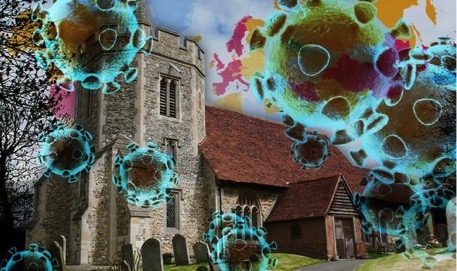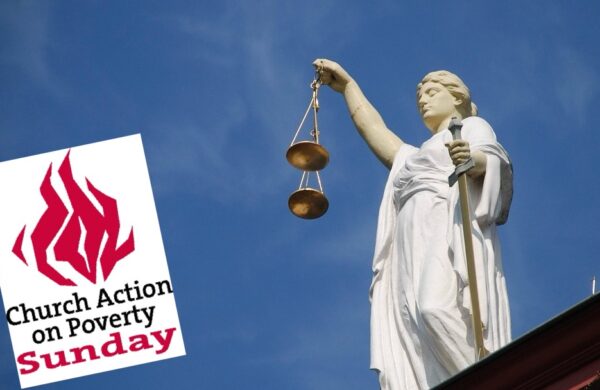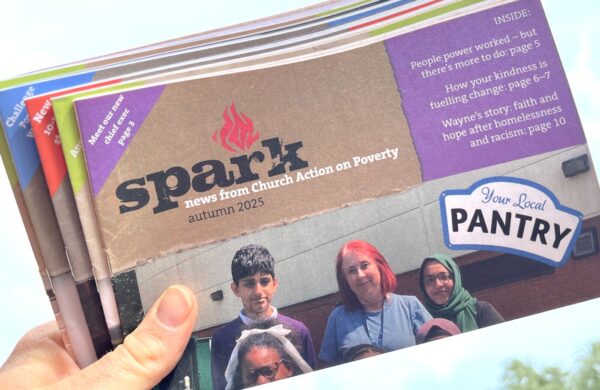What is the churches’ role in responding to Coronavirus? (part 1)
What is the gospel imperative for churches in this challenging time? Church Action on Poverty trustee Stef Benstead has been reflecting on what she's seen. In this first post, she thinks about Jesus' ministry.

Every time I see another group serving the local community, I feel sick. Not because the work isn’t good and important and vital, but because it is good and important and vital and it should have been us. It should have been the church.
What’s worse, I find myself being assured by church people that it’s okay that we’re not meeting practical needs because so-and-so secular group is doing it. As if God said “if you love as the pagans love, you’re doing great” or even “if you just focus on the soul and leave the body to the pagans, that’s great”. When God actually told us to love more than the pagans do, to do more to meet material and practical needs than the pagans do, to go further than we are asked to go. Literally, to walk the extra mile. When your country needs you, don’t just serve your part. Serve more. Serve double. But whatever else you do, don’t do nothing.
Consider this analogy. “Consider the insurance agent who says to a person standing in a burning house, “Good news! Your policy covers fire. We’ll build you a whole new house!’ Okay. That is good news. But the most pressing news the person inside the house needs – right now – is where the door to the outside is.” The author, I think, presented this analogy as an argument for saving someone’s soul (getting them out of the building) as a priority rather than improving their future lot on earth (building a new house). But I found myself reading it the other way around: what kind of person focuses on someone’s future spiritual lot (a new house in the life to come) when they are choking to death now? Who ignores that suffering? Smoke inhalation causes disorientation and clouds one’s vision. If we really want to save people, we need to get them out of their physical distress first. This applies as much to poverty and hunger as it does to smoke inhalation.
Jesus took the same approach. He never asked someone to verbalise their faith in him before helping them. He knew full well that many people came to him only for physical healing or miracles or food (John 6:2,26). Jesus healed ten lepers, but only one came back to thank him (Luke 17:12-19). That man is told that his faith healed him – yet Jesus still healed the other nine. Nor does Jesus even need to always be asked for help: he brought a young man back to life without being asked to do so (Luke 7:11-17) and picked out a single man for healing from amongst the sick and disabled at the pool of Bethesda (John 5:1-9). Other times Jesus tells those he has healed to go and sin no more, but there is no implication that Jesus used any foreknowledge of whether they would receive him in faith as a deciding factor in whether to heal or not.
At Church Action on Poverty, we know that some churches are struggling to keep services open because their volunteers are themselves vulnerable and need to self-isolate. But many others are finding creative ways to serve and keep people connected.



